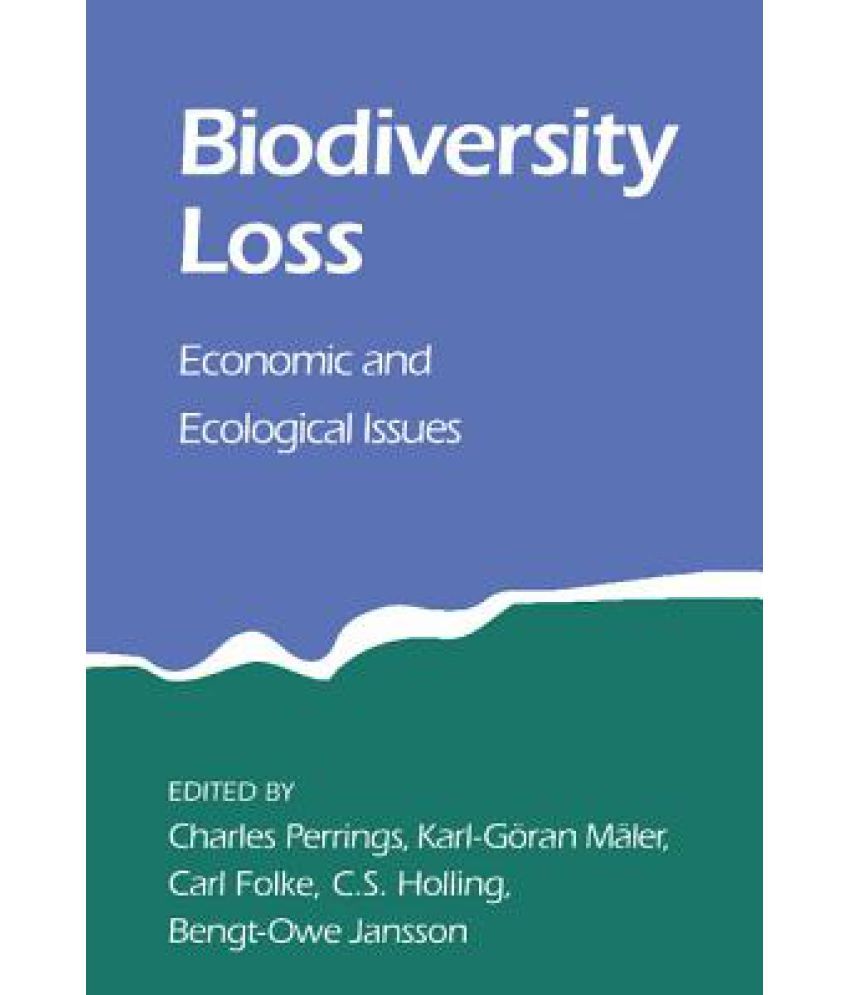Something went wrong. Please refresh the page and try again.
Something went wrong. Please refresh the page and try again.
Notifications can be turned off anytime from settings.
Item(s) Added To cart
Qty.
Something went wrong. Please refresh the page and try again.
Something went wrong. Please refresh the page and try again.
Exchange offer not applicable. New product price is lower than exchange product price
Please check the updated No Cost EMI details on the payment page
Exchange offer is not applicable with this product
Exchange Offer cannot be clubbed with Bajaj Finserv for this product
Product price & seller has been updated as per Bajaj Finserv EMI option
Please apply exchange offer again
Your item has been added to Shortlist.
View AllYour Item has been added to Shopping List
View AllSorry! Biodiversity Loss is sold out.


You will be notified when this product will be in stock
Brief Description
The book reports key findings of a research program in which economists and ecologists considered the consequences of biodiversity loss.
Learn More about the Book
What potential problems does biodiversity loss create for humankind? What basis is there for biologists' concern about what has been described as the sixth mass extinction on our planet? The Biodiversity Programme of the Royal Swedish Academy of Sciences' Beijer Institute brought together eminent economists and ecologists to consider these and other questions about the nature and significance of the problem of biodiversity loss. This volume reports key findings from that programme. In encouraging collaborative interdisciplinary work between the closely related disciplines of economics and ecology, programme participants hoped to shed new light on the concept of diversity, the implications of biological diversity for the functioning of ecosystems, the driving forces behind biodiversity loss, and the options for promoting biodiversity conservation. The results of the programme are surprising. They indicate that the main costs of biodiversity loss may not be the loss of genetic material, but the loss of ecosystem resilience and the insurance it provides against the uncertain environmental effects of economic and population growth. Because this is as much a local as a global problem, biodiversity conservation offers both local and global benefits. Since the causes of biodiversity loss lie in the incentives to local users, that is where reform must begin if the problem is to be tackled successfully.
On the Back Cover
What potential problems does biodiversity loss create for humankind? What basis is there for biologists' concern about what has been described as the sixth mass extinction on our planet? The Biodiversity Programme of the Royal Swedish Academy of Sciences' Beijer Institute brought together eminent economists and ecologists to consider these and other questions about the nature and significance of the problem of biodiversity loss. This volume reports key findings from that programme. In encouraging collaborative interdisciplinary work between the closely related disciplines of economics and ecology, programme participants hoped to shed new light on the concept of diversity, the implications of biological diversity for the functioning of ecosystems, the driving forces behind biodiversity loss, and the options for promoting biodiversity conservation. The results of the programme are surprising. They indicate that the main costs of biodiversity loss may not be the loss of genetic material, but the loss of ecosystem resilience and the insurance it provides against the uncertain environmental effects of economic and population growth. Because this is as much a local as a global problem, biodiversity conservation offers both local and global benefits. Since the causes of biodiversity loss lie in the incentives to local users, that is where reform must begin if the problem is to be tackled successfully.
Review Quotes
1. "This book may be the most significant contribution to the interdisciplinary literature on biodiversity....Well-coordinated group discussions and sharing of draft research papers, joint research projects and chapter co-authorship by ecologists and economists, and strong and thoughtful editing have resulted in a coherent volume of original and strong contributions." Richard B. Norgaard, Journal of Wildlife Management
2. "[The chapters] are solid contributions to the literature. They illuminate many of the core questions of biodiversity and its conservation. They have much to say to conservation biologists, resource economists, environmental strategists, and those concerned with the role of biodiversity in national land-use planning....would make excellent assignments for graduate classes." Norman Myers, BioScience
3. "ÝThe chapters¨ are solid contributions to the literature. They illuminate many of the core questions of biodiversity and its conservation. They have much to say to conservation biologists, resource economists, environmental strategists, and those concerned with the role of biodiversity in national land-use planning....would make excellent assignments for graduate classes." Norman Myers, BioScience
The images represent actual product though color of the image and product may slightly differ.
Register now to get updates on promotions and
coupons. Or Download App